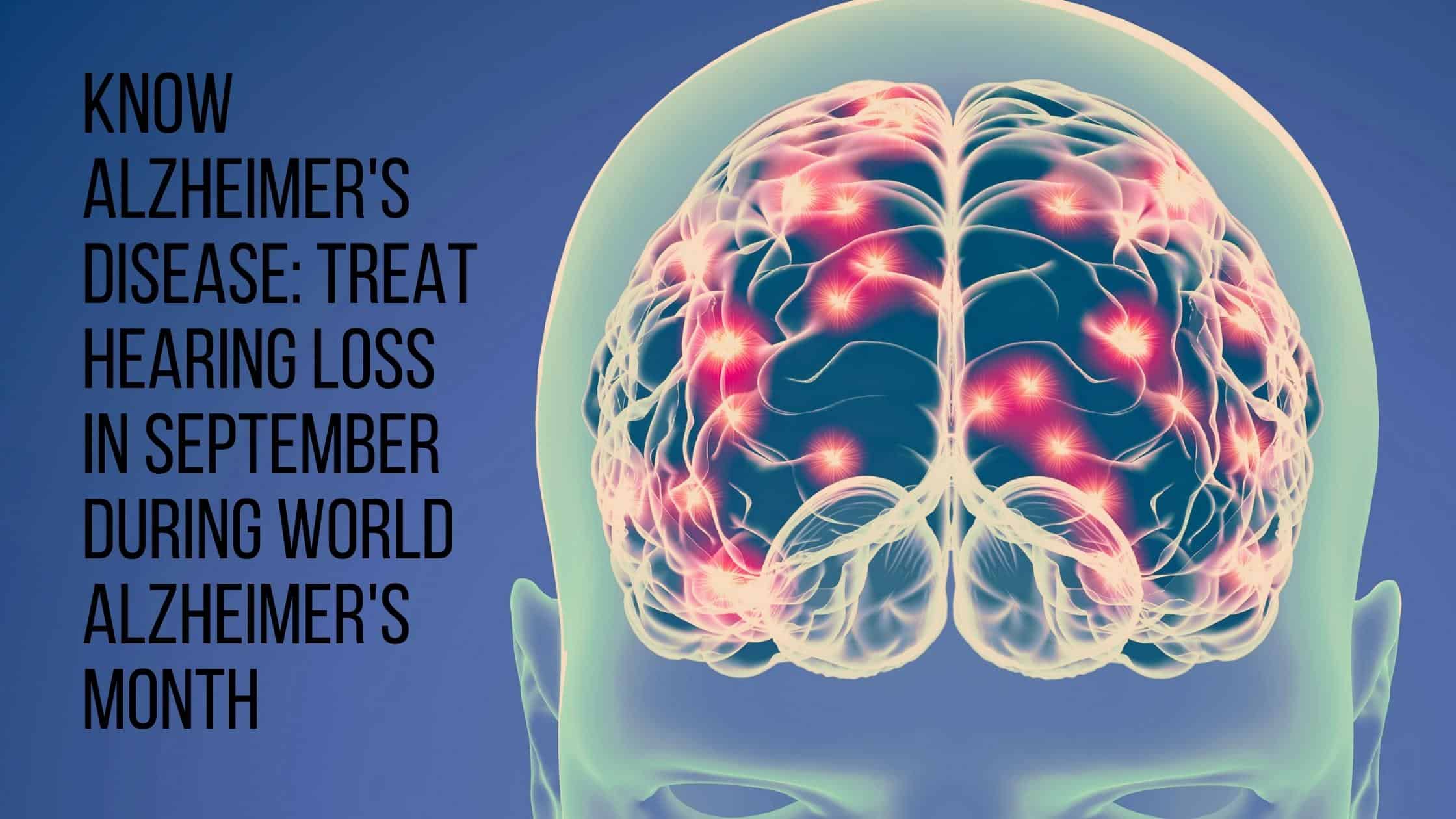
September marks World Alzheimer’s Month. Launched by Alzheimer’s Disease International in 2012, this month is dedicated to raising awareness and challenging the stigma associated with dementia. Dementia is an umbrella term for a group of medical conditions that reduce cognitive capacities. The most common type of dementia is Alzheimer’s which accounts for up to 90% of the dementia people experience. This global campaign advocates for early intervention strategies that mitigate the risk of cognitive decline. Treating hearing loss is a useful way to strengthen brain health which can prevent or delay the development of conditions like Alzheimer’s.
Understanding Alzheimer’s Disease
Alzheimer’s disease is characterized by reduced cognitive function(s). It is a progressive condition that leads to a decline in cognitive capacities including: memory, decision making, learning, and thinking. Alzheimer’s commonly manifests as subtle memory loss at first and can gradually become an inability to perform tasks, remember loved ones, make decisions, and participate in conversations. This can eventually affect one’s personality, lead to social withdrawal, and challenges managing daily life. People experiencing Alzheimer’s may need greater support with daily living and could require regular care.
6.2 million people currently live with Alzheimer’s in the U.S. According to the Alzheimer’s Association, this is projected to rapidly increase, reaching 12.7 million by 2050. Causes of Alzheimer’s are unknown and there are no cures so there is significant emphasis on identifying and treating risk factors. Extensive research shows that hearing loss can increase the risk of cognitive decline therefore, treating hearing impairment is an effective intervention that lowers this risk.
How Does Hearing Loss Impact the Brain?
Hearing loss is a permanent medical condition that impacts nearly 48 million people. The third most common chronic condition people live with today, hearing loss reduces one’s ability to perceive and process sound. This produces various symptoms that make it challenging to hear, straining communication and disrupting daily life. Hearing loss happens both in the ears and the brain, impacting overall brain health. Research shows that hearing loss can contribute to brain atrophy and cognitive overload which takes a toll on optimal functioning.
This includes a 2015 study conducted by researchers in the Department of Speech Language and Hearing Science at University of Colorado who examined how the brain responds to hearing loss. The study consisted of taking and analyzing electroencephalographic (EEG) recordings of adults and children with varying degrees of hearing loss. Researchers found that people with hearing loss experienced:
- less activity in the hearing portion of the brain
- reorganization in the parts of the brain that are responsible for processing visual patterns
This reduced activity and changing of neural networks contributes to a decline in capacity. In addition to this, researchers suggest that social withdrawal also contributes to cognitive decline. Social withdrawal is a significant effect of hearing loss which results in people spending less time with others and participating in social life. This results in less stimuli and engagement for the brain which impacts cognitive function. The toll hearing loss can take on the brain increases the risk of developing conditions like Alzheimer’s.
Treating Hearing Loss
Treating hearing loss starts with one simple step: scheduling an appointment for a hearing test. Hearing tests involve a painless process that measures hearing capacity in both ears. This identifies any impairment and the degree of hearing loss which establishes your hearing needs. The most common treatment for hearing loss is hearing aids which are electronic devices that absorb, amplify, and process sound. This provides significant support, alleviating hearing loss symptoms that strain communication. Hearing aids allow people to hear and communicate with greater ease, offering countless benefits that are life changing.
In addition to drastically improving hearing ability, hearing aids also improve brain health. Hearing aids strengthen cognitive abilities by providing critical support needed to process and understand incoming sound. Greater ability to hear, communicate, and navigate daily life enhances brain functions, reducing the risk of cognitive decline.
September 21st marks World Alzheimer’s Day which you can participate in by prioritizing your hearing health! Doing so can transform how you feel and your overall health, improving the quality and longevity of your life.
